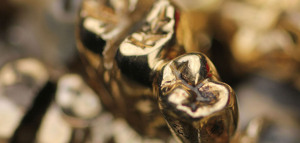Tavex uses cookies to ensure website functionality and improve your user experience. Collecting data from cookies helps us provide the best experience for you, keeps your account secure and allows us to personalise advert content. You can find out more in our cookie policy.
Please select what cookies you allow us to use
Cookies are small files of letters and digits downloaded and saved on your computer or another device (for instance, a mobile phone, a tablet) and saved in your browser while you visit a website. They can be used to track the pages you visit on the website, save the information you enter or remember your preferences such as language settings as long as you’re browsing the website.
| Cookie name | Cookie description | Cookie duration |
|---|---|---|
| tavex_cookie_consent | Stores cookie consent options selected | 60 weeks |
| tavex_customer | Tavex customer ID | 30 days |
| wp-wpml_current_language | Stores selected language | 1 day |
| AWSALB | AWS ALB sticky session cookie | 6 days |
| AWSALBCORS | AWS ALB sticky session cookie | 6 days |
| NO_CACHE | Used to disable page caching | 1 day |
| PHPSESSID | Identifier for PHP session | Session |
| latest_news | Helps to keep notifications relevant by storing the latest news shown | 29 days |
| latest_news_flash | Helps to keep notifications relevant by storing the latest news shown | 29 days |
| tavex_recently_viewed_products | List of recently viewed products | 1 day |
| tavex_compare_amount | Number of items in product comparison view | 1 day |
| Cookie name | Cookie description | Cookie duration |
|---|---|---|
| chart-widget-tab-*-*-* | Remembers last chart options (i.e currency, time period, etc) | 29 days |
| archive_layout | Stores selected product layout on category pages | 1 day |
| Cookie name | Cookie description | Cookie duration |
|---|---|---|
| cartstack.com-* | Used for tracking abandoned shopping carts | 1 year |
| _omappvp | Used by OptinMonster for determining new vs. returning visitors. Expires in 11 years | 11 years |
| _omappvs | Used by OptinMonster for determining when a new visitor becomes a returning visitor | Session |
| om* | Used by OptinMonster to track interactions with campaigns | Persistent |
| Cookie name | Cookie description | Cookie duration |
|---|---|---|
| _ga | Used to distinguish users | 2 years |
| _gid | Used to distinguish users | 24 hours |
| _ga_* | Used to persist session state | 2 years |
| _gac_* | Contains campaign related information | 90 days |
| _gat_gtag_* | Used to throttle request rate | 1 minute |
| _fbc | Facebook advertisement cookie | 2 years |
| _fbp | Facebook cookie for distinguishing unique users | 2 years |
What is Gold Used for Today?

Gold, a lustrous and precious metal, has captivated human imagination and shaped our history, economy, and culture. This article delves into the fascinating journey of gold, from its physical properties to its widespread applications.
With unique characteristics such as rarity, resistance to rust, malleability, and high electrical conductivity, gold stands out among precious metals. Its story begins in ancient civilisations, where it symbolised divine power and wealth. This has evolved through the ages to become a cornerstone in modern monetary systems, fashion, medicine, and technology.
As we explore gold’s enduring legacy, we uncover how it has become an irreplaceable part of human progress and creativity.
Physical Properties of Gold
The physical properties of gold significantly contribute to its high demand and versatility across various fields. These key attributes include:
- Rarity: Gold is a rare metal, adding to its value and desirability. Its scarcity makes it a prized possession and a symbol of wealth.
- Resistance to Rust and Non-toxicity: Unlike many other metals, gold does not oxidise or corrode, ensuring its enduring beauty and utility. Its non-toxic nature makes it safe for various uses, including in medical and food applications.
- Aesthetic Appeal with High Luster: Gold’s natural luster and its ability to retain its shine without tarnishing make it a favourite for jewellery and decorative items.
- Malleability: One of gold’s most remarkable properties is its malleability. It can be easily shaped, bent, and formed into intricate designs without breaking. This makes it ideal for crafting detailed and delicate items.
- High Electrical Conductivity: Gold’s excellent electrical conductivity makes it indispensable in electronics. It efficiently conducts electricity, ensuring reliable and uninterrupted operation of electronic devices.
Origin and History

The history of gold is as rich and varied as the civilisations that have treasured it. Its discovery dates back to prehistoric times, with evidence of gold being used as decoration in ancient cultures. Gold origins in Egypt was synonymous with divine and royal power. This has been seen in the opulent artefacts from pharaohs’ tombs. Similarly, in Lydia (modern-day Turkey), around 560 BC, gold coins were first minted, revolutionising economic systems with a reliable currency.
Throughout the ages, gold has been a symbol of status and wealth. In various cultures, it was believed to possess mystical powers and was often associated with the gods and the afterlife. This reverence led to its widespread use in religious artefacts and ceremonial objects.
Gold’s value and beauty have made it a consistent choice for jewellery. This is a tradition that continues robustly today, with a significant portion of mined gold being fashioned into various adornments. Its permanence and resistance to tarnish contribute to its lasting popularity, making gold a symbol of enduring beauty and wealth through the ages.
Expanded Overview of Modern Uses of Gold
Wealth Protection, Finance, Investing
Gold’s status as a “safe haven” asset in the long term is deeply rooted in its historical value and scarcity. It offers a hedge against inflation, often appreciating during economic downturns. Central banks and governments hold substantial gold reserves as a symbol of economic stability.
 In Stock
In Stock
For private investors, gold investments serves as a diversification tool in portfolios. Gold is available in forms such as gold bars, bullion, coins, and gold-backed securities. Its enduring intrinsic value makes it a preferred choice for wealth preservation over centuries.
Jewellery and Medals

Gold’s role in jewellery extends beyond mere aesthetics; it’s a cultural and social symbol. Gold jewellery’s hypoallergenic nature makes it suitable for sensitive skin. While additionally its workability allows for intricate designs in necklaces, rings, and bracelets.
In sports and academia, gold medals embody the highest honour, symbolising achievement and excellence. The metal’s longevity ensures that these items can be passed down as heirlooms, retaining both their beauty and value.
Electronics
In the field of electronics, gold’s unparalleled electrical conductivity ensures minimal energy loss and reliable performance in devices. Its corrosion resistance is vital in preventing degradation of contacts and connectors, extending the lifespan of electronic gadgets.
In 2017, the electronics sector used 265 tonnes of gold, a 4% increase on 2016 and the first year-on-year percentage growth since 2010
From smartphones to sophisticated satellite systems, gold’s role is integral in the functioning of key components, facilitating rapid and error-free data transfer.
Space Exploration

Gold’s application in space technology underscores it’s reliability under extreme conditions. It’s used in circuitry and as a coating on parts of spacecraft to shield against solar radiation and heat.
This versatility makes it indispensable in missions where repair is impossible, ensuring the safety and functionality of space vehicles. The recent use of gold in the James Webb Space Telescope exemplifies its critical role in advanced space exploration.
Medicine and Dentistry
In medicine, gold’s biocompatibility makes it a preferred material for implants and diagnostic tools. Gold in medicine is used in treating certain medical conditions, like rheumatoid arthritis, showcases its therapeutic potential.

In dentistry, gold alloys are used for their strength and compatibility with body tissues. This is ideal for long-lasting fillings, crowns, and bridges. The aesthetic and practical aspects of gold in dentistry highlight its continued relevance in health and wellness.
Additional Uses
- Food and Beverages: As a status symbol, edible gold is used in gastronomy, adding luxury to dishes and drinks without affecting their flavour.
- Fashion: Gold has a historical significance in fashion, particularly in royal clothing and ceremonial garments.
- Printing: Gold foil is used in high-quality printing to enhance brand reputation.
- Cosmetics and Beauty: In skincare, gold’s anti-inflammatory properties are leveraged for treatments.
- Buildings and Glassmaking: Gold coatings on windows help regulate temperature and are used in iconic building designs.
Conclusion
In conclusion, gold’s unique properties and historical significance have entrenched it as a crucial element in numerous sectors. Globally, this precious metal is a cornerstone in monetary systems and investment portfolios.
Its role extends beyond mere ornamentation; from the intricacies of rheumatoid arthritis treatment to the high-tech requirements of Aerospace. The amount of gold in circulation, from gold coins to bars, reflects its enduring value.
As a chemical element, its presence in medicine, or in the form of pure gold in jewellery, speaks to its versatility. The price of gold, influenced by gold prices and gold deposits, remains a barometer for the health of global financial markets. Its long-term appeal in physical gold assets underscores its perpetual relevance, making it an indispensable resource for future generations.

















